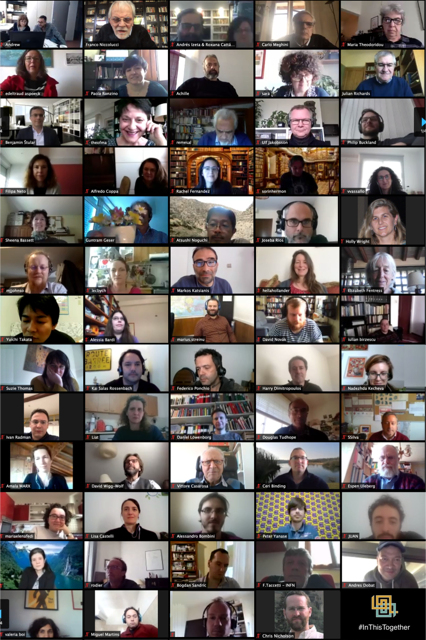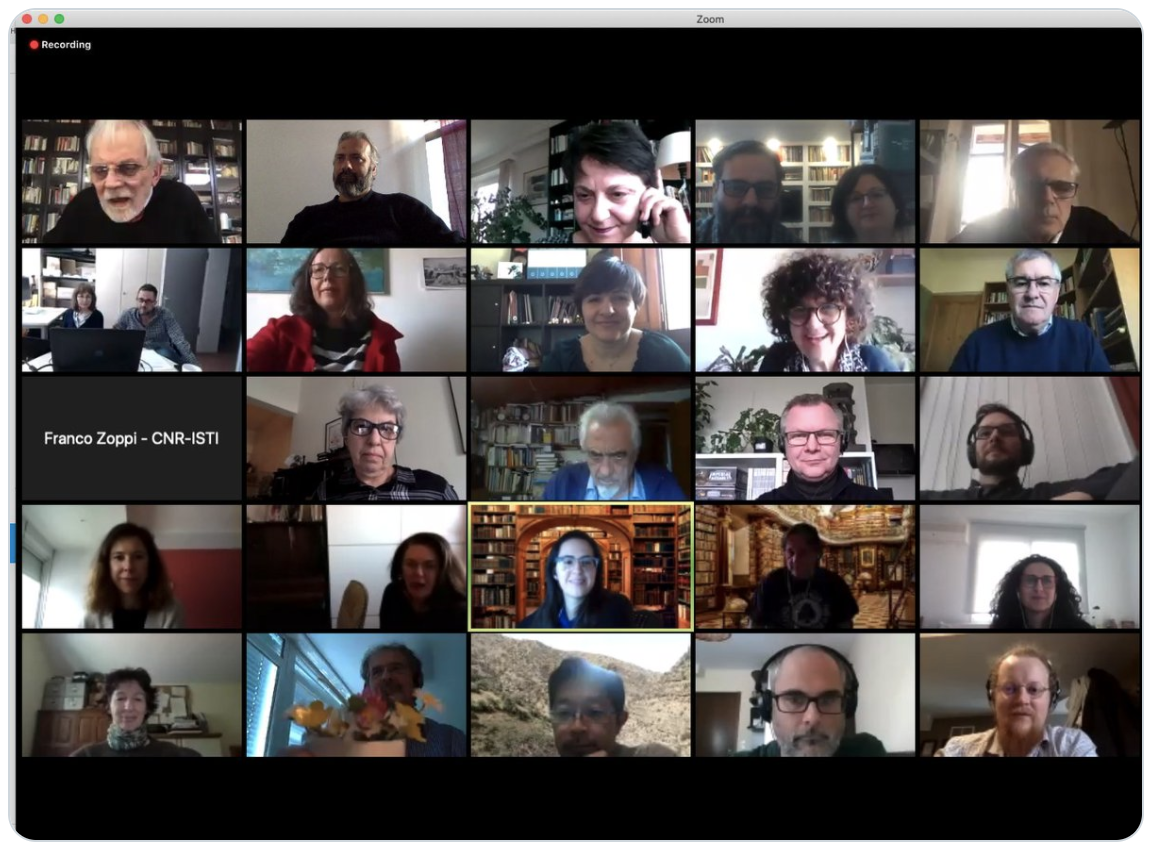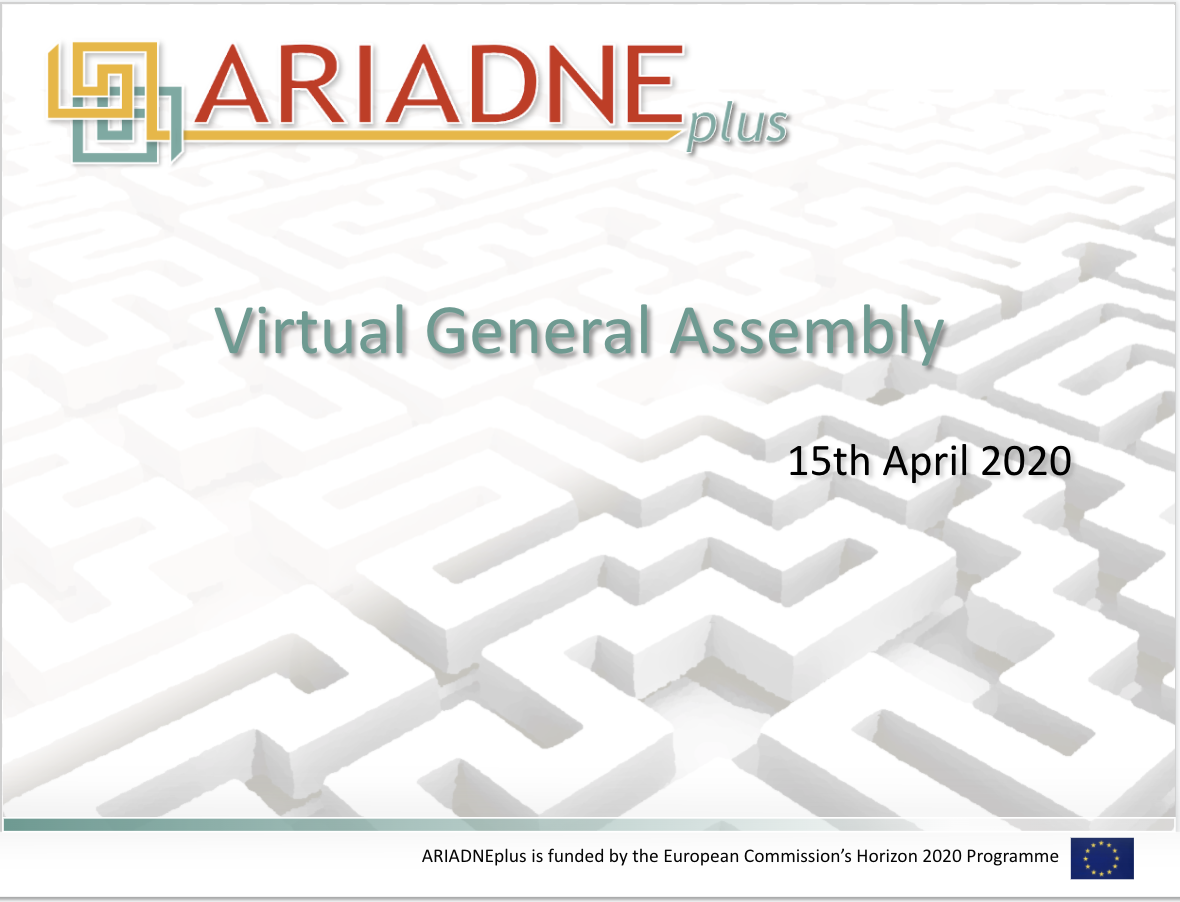(How to host a successful mass participation virtual meeting)
ARIADNEplus held its General Assembly on the 15th April as a virtual meeting with colleagues joining from all over Europe, Japan, Argentina and the US. In all, 76 participants attended the Zoom meeting which was hosted by PIN. After an introduction and welcome by Franco Niccolucci (PIN) and an overview of the management activities (including the Steering Committee the day before) by Franco and Project Manager, Paola Ronzino, the screen was given in turn to Julian Richards (ADS) who summarised the good progress made regarding data preparation and mapping, Carlo Meghini (CNR) on the technical achievements which include a number of useful new tools such as a simple spreadsheet tool (FAST-CAT) to enable partners to quickly prepare and ingest small datasets into the Portal, and Guntram Geser (SRFG) who presented the work done on the Innovation and Impact task, outlining the activities undertaken and how the Impact of the project will be evaluated. Franco announced that all software produced by the project will be Open source (licence to be agreed). The Project Officer also joined the meeting for a short period and expressed her satisfaction with progress made by ARIADNEplus.
After the presentations by the Board of Directors on the main activities, each partner was allocated two slides to summarise their achievements and plans for the next 6-month period in a three-minute time limit. A new collaborator, the ROCEEH Project, informed the members about how they are going about adding their palaeontology records from the ROAD database to the Portal. The General Assembly format actually worked very well as all the slides for the forty presentations were created in one Google Slides document, controlled by Paola, and each partner was able to quickly switch their microphones on to continue the reporting when it came to their turn. A short comfort break (10 minutes) after each hour helped keep everyone focussed and whole meeting lasted three and a half hours including discussion and a round-up by Franco at the close of the General Assembly.
Despite the current COVID-19 situation which has led to nearly everyone working from home, the project members have coped well with this change in circumstances. Planned physical meetings have been migrated into virtual events, plans are being updated to adapt future activities and the first round of project reports due in June are on schedule. Not only is the ARIADNEplus Community learning from their research activities but also from adapting to the ‘new normal’.



